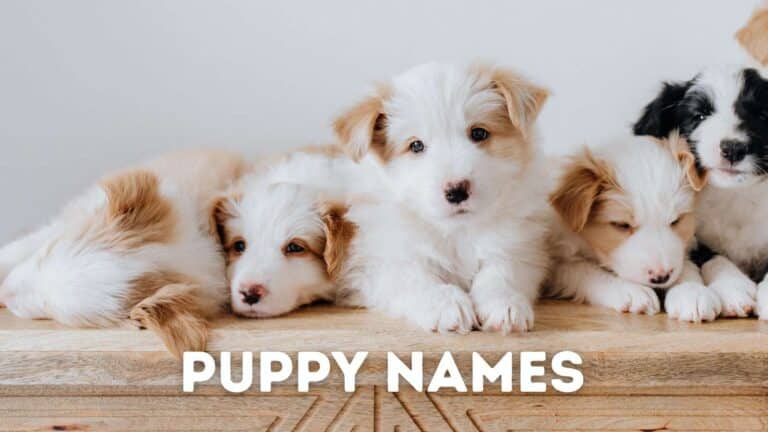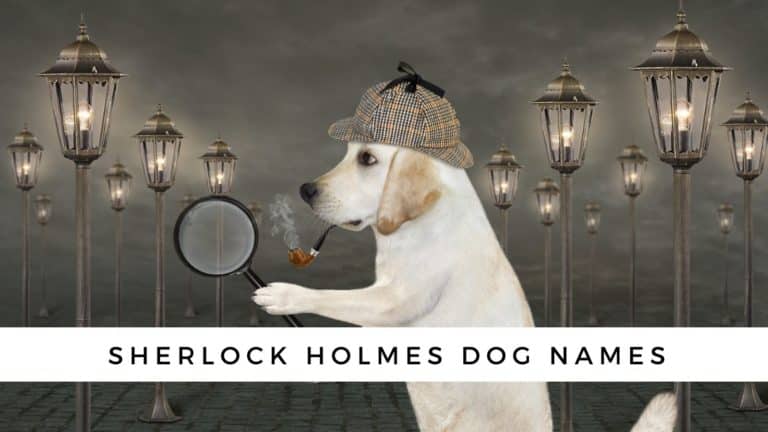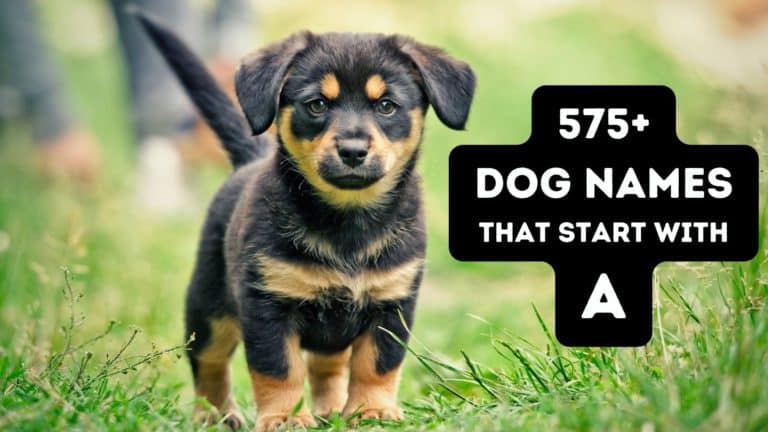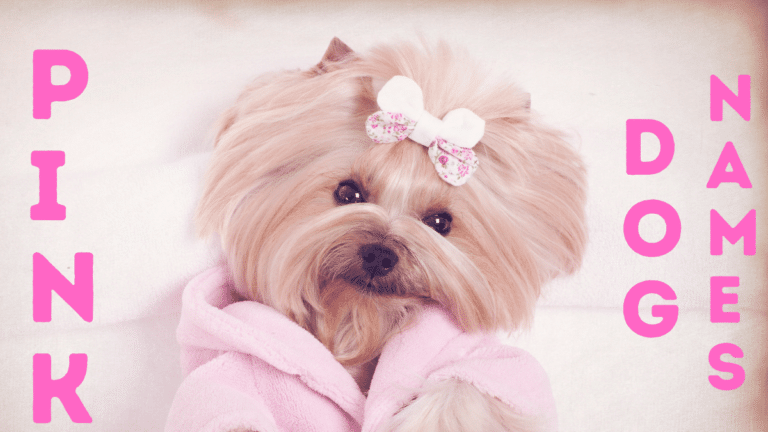140+ Wolf Names for Dogs
All dogs, from the tiniest Chihuahua to the most wolf-life breeds such as the Alaskan Malamute and Siberian Husky, all share nearly 99 percent of their DNA with the wolf. Whether you think your dog resembles his nearest relative–or you just love the allure of this wild animal–you might consider wolf names for your new dog.
If you find yourself drawn to the untamed beauty and allure of wolves, perhaps you’re considering giving your four-legged friend a name that resonates with the wild spirit of these majestic creatures. In this article, we will embark on a captivating journey through the world of wolf names for dogs, exploring their meanings, historical significance, and how they can perfectly encapsulate your puppy’s unique personality.
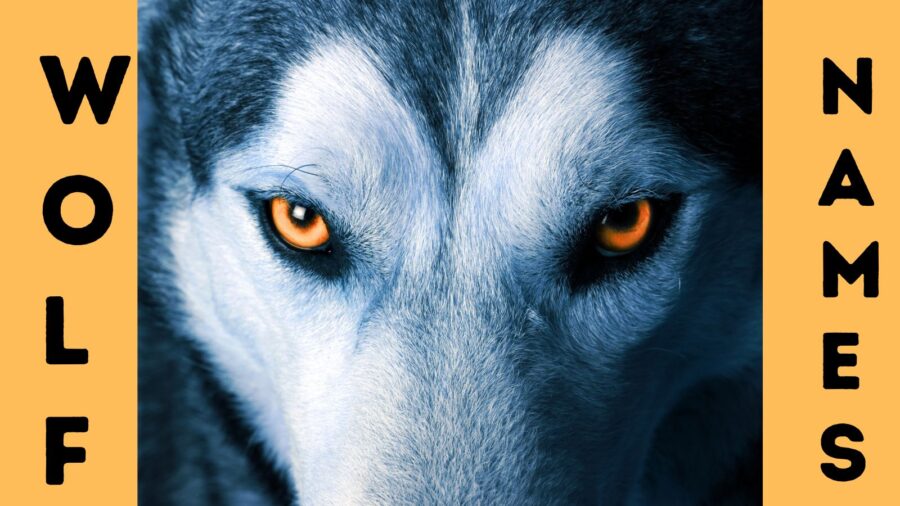
Female Wolf Names
Adolfa – German origin, meaning “noble wolf.”
Araluen – Australian Aboriginal origin, meaning “water lily” or “place of the little wolf.”
Bardolf – English origin, meaning “axe-wolf.”
Daciana – Romanian origin, meaning “wolf.”
Eadwulf – Anglo-Saxon origin, meaning “rich wolf.”
Fenella – Scottish origin, meaning “white shoulder of a wolf.”
Guadalupe – Spanish origin, meaning “wolf valley.”
Hati – Old Norse origin, meaning “wolf.”
Kaida – Meaning “little dragon,” evoking an air of mystery.
Langrune – Norse origin, meaning “long wolf.”
Leandra – Greek origin, meaning “lioness” or “woman like a lion or a wolf.”
Leika – Inspired by Laika, the first dog in space, symbolizing loyalty
Lobelia – English origin, meaning “little she-wolf.”
Loviatar – Finnish mythology, meaning “wolf’s cub.”
Luna – Symbolizing the moon, often associated with wolf strength.
Lupe – Spanish origin, meaning “wolf.”
Luperca – Latin origin, a she-wolf from Roman mythology.
Lyall – Scottish origin, meaning “wolf.”
Lyca – Greek origin, meaning “she-wolf.”
Lycurgus – Greek origin, meaning “wolf-ruler.”
Lykaia – Greek origin, meaning “she-wolf.”
Lykaina – Greek origin, meaning “she-wolf.”
Lykke – Danish origin, meaning “luck” or “good fortune” often associated with wolves.
Lupita – Spanish origin, meaning “little wolf.”
Lupus – Latin origin, meaning “wolf.”
Lyulph – Old Norse origin, meaning “wolf of Thor.”
Maheegan – Native American origin, meaning “wolf.”
Maugrim – Irish origin, meaning “wolf.”
Nikita – Meaning “victorious,” implying intelligence and wit.
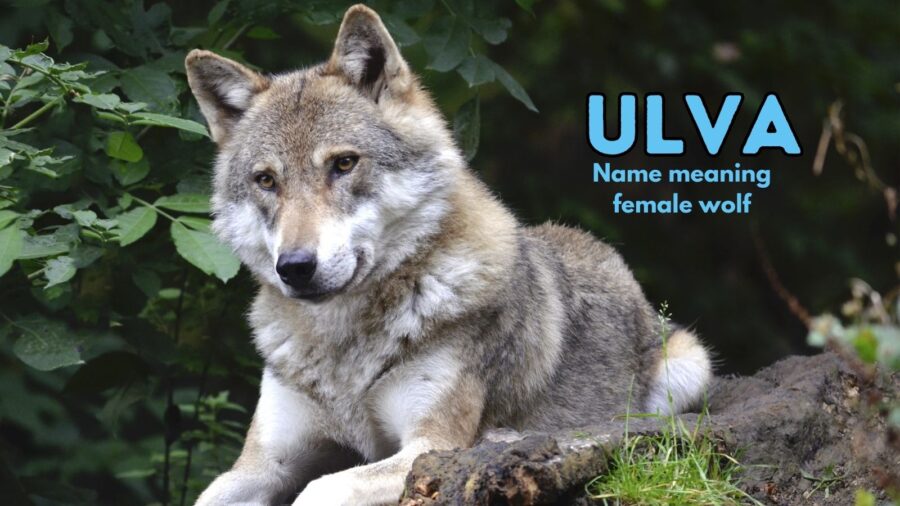
Ulva – Old English origin, meaning “female wolf.”
Ulvilda – Old Norse origin, meaning “wolf’s weald” or “wolf’s forest.”
Ulfhildr – Old Norse origin, meaning “wolf battle” or “battle of the wolf.”
Wolfrun – English origin, meaning “joyful wolf.”
Male Wolf Names
Adalwolf – German origin, meaning “noble wolf.”
Bardolf – English origin, meaning “axe-wolf.”
Beowulf – Old English origin, meaning “bee-wolf” or “bear-wolf.”
Conall – Irish/Gaelic origin, meaning “strong as a wolf.”
Conan – Irish origin, meaning “little wolf” or “little hound.”
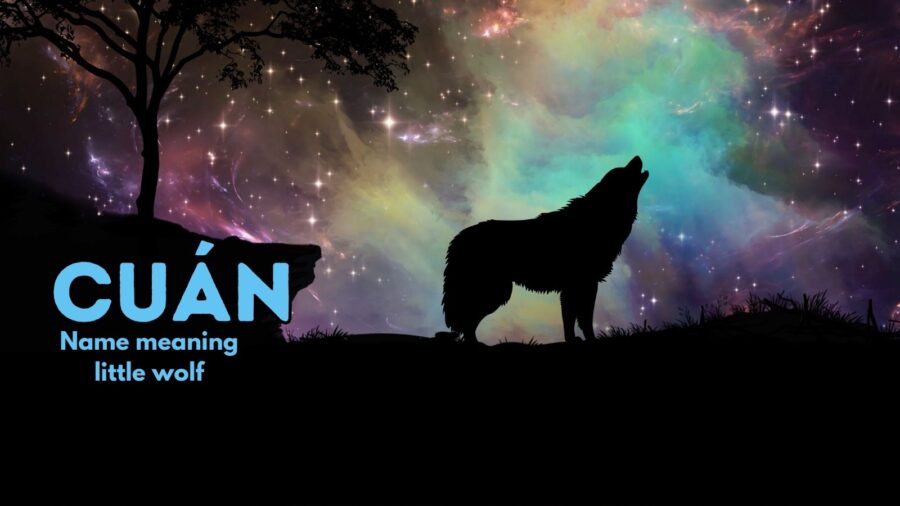
Cuán – Irish/Gaelic origin, meaning “little wolf” or “little hound.”
Dolph – German origin, meaning “noble wolf.”
Eadwulf – Anglo-Saxon origin, meaning “rich wolf.”
Faolan – Irish/Gaelic origin, meaning “little wolf.”
Fenris – Norse origin, meaning “Fenrir’s wolf.”
Garm – Norse origin, a name for the dog associated with Hel, often translated as “wolf.”
Guadalupe – Spanish origin, meaning “wolf valley.”
Hati – Old Norse origin, meaning “wolf.”
Ingvar – Norse origin, meaning “warrior wolf.”
Itzal – Basque origin, meaning “shadow of a wolf.”
Lobo – Spanish origin, meaning “wolf.”
Loki – After the Norse trickster god, representing cleverness
Lonán – Irish/Gaelic origin, meaning “little wolf.”
Lovell – Old English origin, meaning “wolf.”
Lowell – Old French origin, derived from Lovell, meaning “wolf.”
Lupe – Spanish origin, meaning “wolf.”
Lupin – Latin origin, meaning “wolf.”
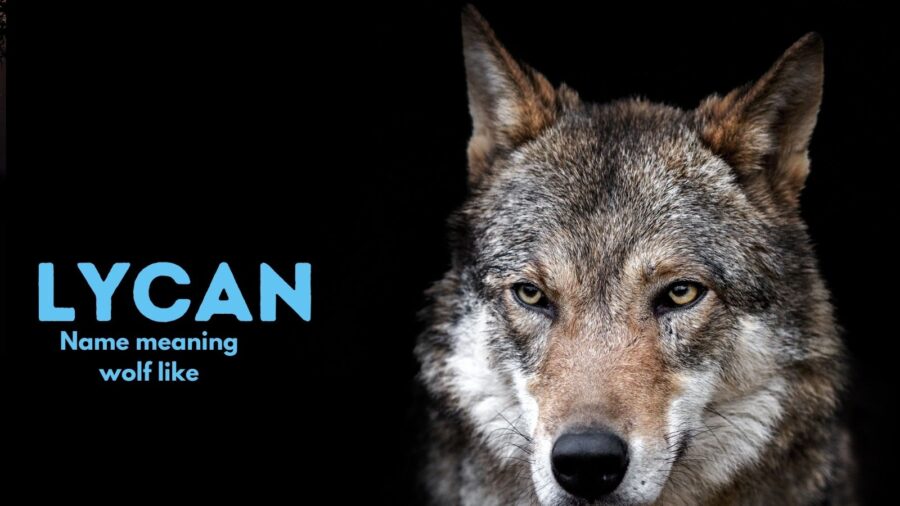
Lycan – Greek origin, meaning “wolf-like.”
Lycidas – Greek origin, meaning “wolf-son.”
Lycurgus – Greek origin, meaning “wolf-ruler.”
Lykaon – Greek origin, meaning “wolf.”
Lykos – Greek origin, meaning “wolf.”
Lyulf – Old English origin, meaning “wolf-wolf” or “famous wolf.”
Odin – After the Norse god known for loyalty and wisdom
Rafe – English origin, derived from the Old Norse name “Hrafn,” meaning “wolf.”
Ralph – English origin, derived from the Old Norse name “Raðulfr,” meaning “wolf counsel.”
Rolf – Similar to Ralph, this is an Old English boy’s name meaning wolf.
Rollo – German boy’s name meaning wolf.
Rudi – German origin, meaning “famous wolf.”
Rudolph – Old Norse origin, meaning “wolf of fame.”
Thor – After the mighty Norse god of thunder.
Ulric – English origin, derived from the Old High German name “Uodalric,” meaning “prosperous wolf.”
Ulrich – German origin, meaning “prosperous wolf.”
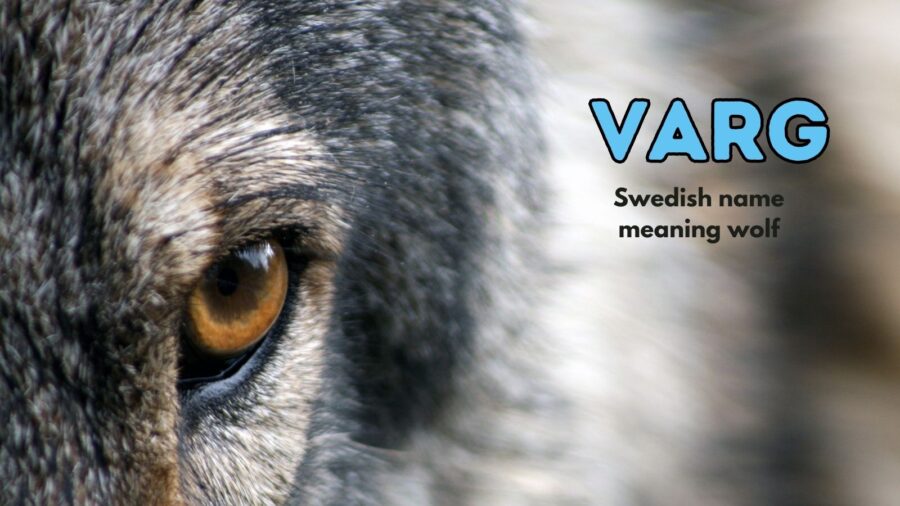
Varg – Swedish name meaning “wolf.”
Velvel – Yiddish origin, meaning “wolf.”
Vilkas – Lithuanian origin, meaning “wolf.”
Vuk – Slavic origin, meaning “wolf.”
Weylyn – Old English origin, meaning “wolf.”
Wolfgang – German origin, meaning “wolf path.”
Wolfric – English origin, meaning “wolf power.”
Wolfstan – Old English origin, meaning “wolf stone.”
Wolsey – English origin, meaning “wolf island.”
Woolsey – English origin, meaning “wolf island.”
Wulfgar – Old English origin, meaning “wolf spear.”
Wulfric – Old English origin, meaning “wolf power.”
Wulfsige – Old English origin, meaning “wolf victory.”
Wulstan – Old English origin, meaning “wolf stone.”
Wyland – Old English origin, meaning “wolf land.”
Wynton – Old English origin, meaning “wolf town.”
Did you know that dogs and wolves have the same number of teeth–but the wolf’s teeth and jaw is stronger and larger.
Mythical wolf names
- Amaroq – Inuit mythology, a legendary wolf figure.
- Anubis – Egyptian god of mummification, with a wolf-like appearance
- Apollo – Greek god often associated with wolves
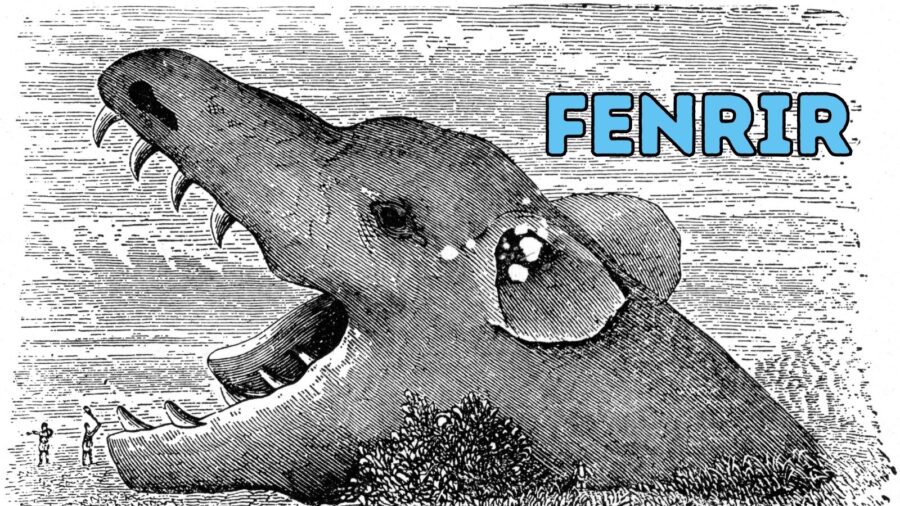
- Fenrir – Norse mythology, a monstrous wolf and son of Loki.
- Geri – Norse mythology, one of Odin’s wolves.
- Hati – Norse mythology, a wolf who chases the sun and moon.
- Lycaon – Greek mythology, a king turned into a wolf by Zeus.
- Sköll – Norse mythology, a wolf who chases the sun.
- Ulfr – Old Norse, meaning “wolf.”
- Wepwawet – Egyptian mythology, a wolf-like deity associated with war and hunting.
- Zibu – Mesopotamian mythology, a protective wolf-demon.
- Zvířet – Slavic mythology, a wolf-like forest spirit or deity.
Famous Wolves in TV, Movies and Literature
- Akela – From The Jungle Book (movie)
- Balto – From Balto (movie)
- Ghost – From Game of Thrones (TV show)
- Grey Wind – From Game of Thrones (TV show)
- Holo – From Spice and Wolf (anime)
- Kiba – From Wolf’s Rain (anime)
- Lobo – From Justice League Unlimited (TV show)
- Maugrim – From The Chronicles of Narnia: The Lion, the Witch and the Wardrobe (movie)
- Nymeria – From Game of Thrones (TV show)
- Steele – From Balto (movie)
- Talon – From Storks (movie)
- The Big Bad Wolf – From various adaptations of “Little Red Riding Hood” and “Three Little Pigs”
- White Fang – From White Fang (movie)
Wolf in Different Languages
- Aatu – Finnish
- Bardo – Tibetan
- Chiqma – Chechen
- Dhiab – Arabic
- Gau – Basque
- Iwak – Filipino (Tagalog)
- Kuttur – Greenlandic (Kalaallisut)
- Lobo – Spanish, Portuguese
- Luk – Bulgarian
- Lup – Romanian
- Lupu – Lithuanian
- Lupus – Latin
- Lykos – Greek
- Njáll – Old Norse
- Okami – Japanese
- Phisi – Zulu
- Seol – Korean
- Serigala – Indonesian, Malay
- Sloughi – Berber (Amazigh)
- Soayr – Maltese
- Tala – Ojibwe (Anishinaabe)
- Urho – Finnish
- Vaewolf – Afrikaans
- Volk – Russian
- Vuk – Serbian, Croatian, Hungarian
- Warg – Old English
- Warg – Old Norse
- Vilkas – Lithuanian
- Ylfa – Old Norse
- Zevs – Greek
- Zwolf – German
By embracing wolf-inspired names for our dogs, we pay tribute to the untamed spirit that still flickers within them, and in doing so, we invite a sense of adventure, loyalty, and wonder into our lives. As our furry friends continue to stand faithfully by our sides, may their wolf-inspired names remind us of the wild beauty that lies in the heart of every canine, and the enduring bond that unites us with these magnificent creatures.
FAQ
Why would someone consider giving their dog a wolf name?
Some individuals may consider giving their dog a wolf name because they are captivated by the allure and mystique of wolves. These names can symbolize the wild spirit, strength, and grace associated with wolves, and can be a way for dog owners to reflect their admiration and connection to these magnificent creatures.
Naming a dog that resembles a wolf can be a way to celebrate their physical traits or to pay homage to the untamed spirit and beauty that wolves represent.
Do wolves in zoos have names?
Wolves that are being cared for at a zoo or rescue may be given names to facilitate communication and identification among the staff. This allows caretakers to easily refer to individual wolves and track their health, behaviors, and specific needs.
Where can I get a wolf?
Wolves are wild animals and are happiest as such. Unfortunately many people have tried to have wolves and wolf hybrids as pets; many of these eventually make their way to wolf sanctuaries which focus on rescuing and rehabilitating wolves. Reach out to reputable sanctuaries near you and inquire about any programs or volunteering opportunities they offer. Getting involved with a sanctuary can provide you with the opportunity to interact with wolves and learn more about their behavior while letting the wolves be wolves.
More Dog Names You Might Like
Shark Names for Your Toothy Pup
Twilight Dog Names: Bella and Beyond for the Most Devoted Fans
180 Halloween Dog Names – A Monster List of Names for Your Fur Baby
Pin it to remember these good wolf names!
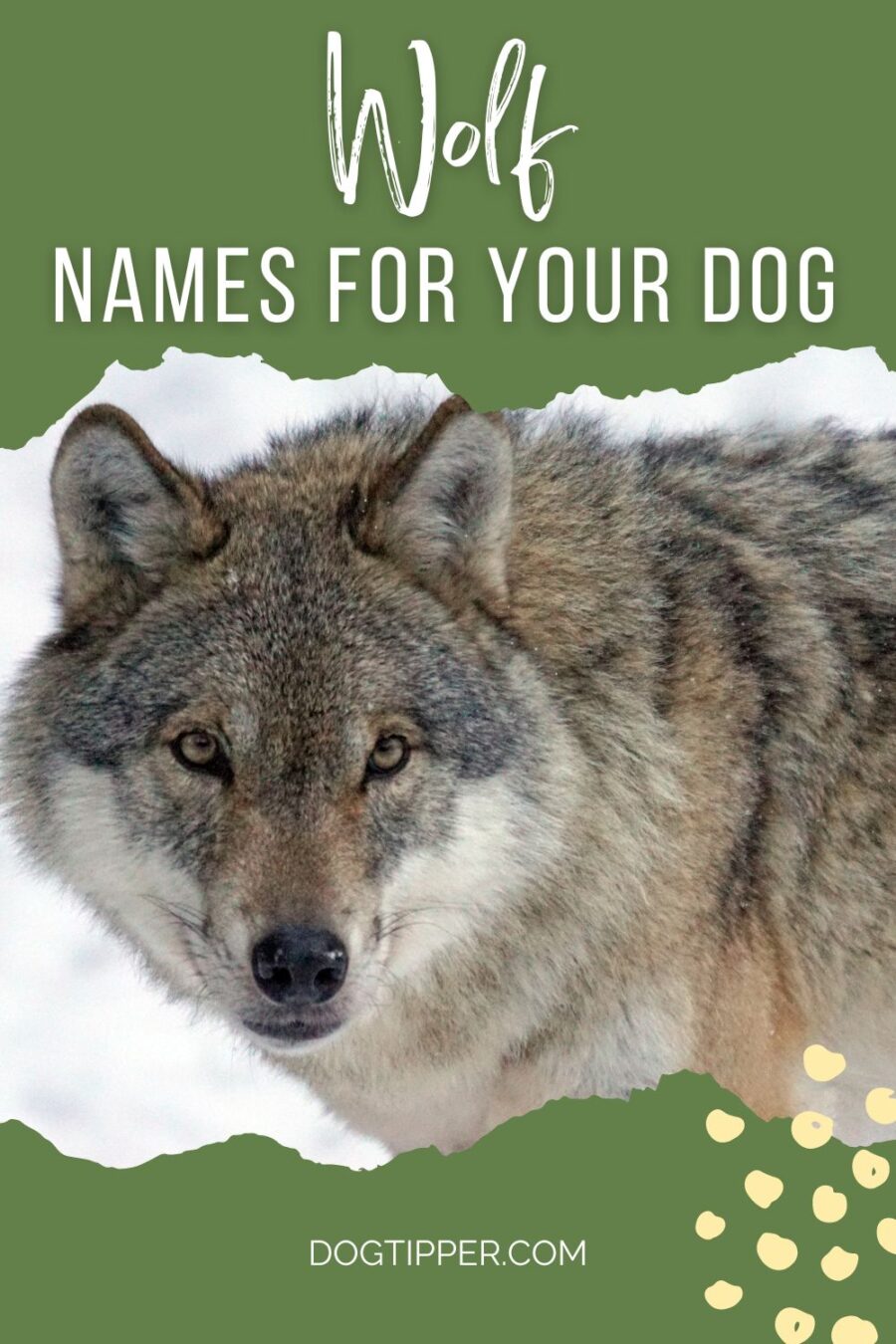
- Everyday Outings as Enrichment - January 26, 2026
- How to Turn Your Daily Dog Walk Into Mental Enrichment (Without More Time) - January 24, 2026
- Calm Enrichment Activities for Dogs - January 23, 2026

